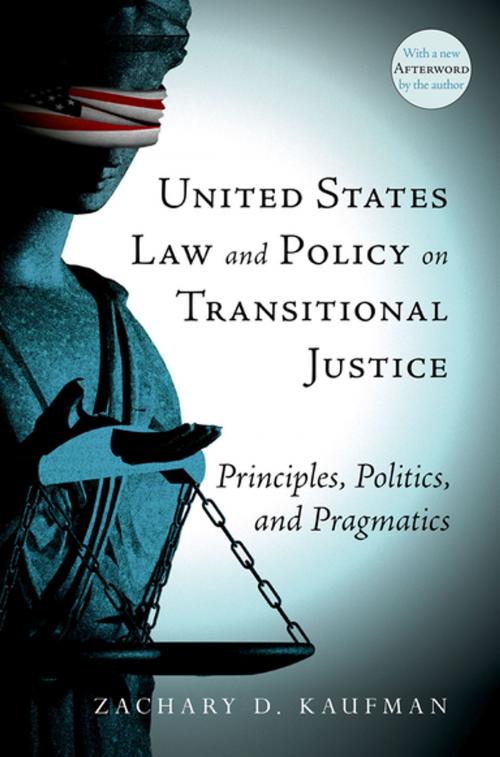United States Law and Policy on Transitional Justice
Principles, Politics, and Pragmatics
Nonfiction, Social & Cultural Studies, Political Science, Politics, Arms Control, Reference & Language, Law, International| Author: | Zachary D. Kaufman | ISBN: | 9780190668419 |
| Publisher: | Oxford University Press | Publication: | January 2, 2017 |
| Imprint: | Oxford University Press | Language: | English |
| Author: | Zachary D. Kaufman |
| ISBN: | 9780190668419 |
| Publisher: | Oxford University Press |
| Publication: | January 2, 2017 |
| Imprint: | Oxford University Press |
| Language: | English |
In United States Law and Policy on Transitional Justice: Principles, Politics, and Pragmatics, Zachary D. Kaufman explores the U.S. government's support for, or opposition to, certain transitional justice institutions. By first presenting an overview of possible responses to atrocities (such as war crimes tribunals) and then analyzing six historical case studies, Kaufman evaluates why and how the United States has pursued particular transitional justice options since World War II. This book challenges the "legalist" paradigm, which postulates that liberal states pursue war crimes tribunals because their decision-makers hold a principled commitment to the rule of law. Kaufman develops an alternative theory-"prudentialism"-which contends that any state (liberal or illiberal) may support bona fide war crimes tribunals. More generally, prudentialism proposes that states pursue transitional justice options, not out of strict adherence to certain principles, but as a result of a case-specific balancing of politics, pragmatics, and normative beliefs. Kaufman tests these two competing theories through the U.S. experience in six contexts: Germany and Japan after World War II, the 1988 bombing of Pan Am flight 103, the 1990-1991 Iraqi offenses against Kuwaitis, the atrocities in the former Yugoslavia in the 1990s, and the 1994 Rwandan genocide. Kaufman demonstrates that political and pragmatic factors featured as or more prominently in U.S. transitional justice policy than did U.S. government officials' normative beliefs. Kaufman thus concludes that, at least for the United States, prudentialism is superior to legalism as an explanatory theory in transitional justice policymaking.
In United States Law and Policy on Transitional Justice: Principles, Politics, and Pragmatics, Zachary D. Kaufman explores the U.S. government's support for, or opposition to, certain transitional justice institutions. By first presenting an overview of possible responses to atrocities (such as war crimes tribunals) and then analyzing six historical case studies, Kaufman evaluates why and how the United States has pursued particular transitional justice options since World War II. This book challenges the "legalist" paradigm, which postulates that liberal states pursue war crimes tribunals because their decision-makers hold a principled commitment to the rule of law. Kaufman develops an alternative theory-"prudentialism"-which contends that any state (liberal or illiberal) may support bona fide war crimes tribunals. More generally, prudentialism proposes that states pursue transitional justice options, not out of strict adherence to certain principles, but as a result of a case-specific balancing of politics, pragmatics, and normative beliefs. Kaufman tests these two competing theories through the U.S. experience in six contexts: Germany and Japan after World War II, the 1988 bombing of Pan Am flight 103, the 1990-1991 Iraqi offenses against Kuwaitis, the atrocities in the former Yugoslavia in the 1990s, and the 1994 Rwandan genocide. Kaufman demonstrates that political and pragmatic factors featured as or more prominently in U.S. transitional justice policy than did U.S. government officials' normative beliefs. Kaufman thus concludes that, at least for the United States, prudentialism is superior to legalism as an explanatory theory in transitional justice policymaking.















